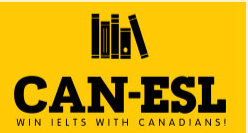Express Entry vs Provincial Nominee Program (PNP): Which Path Should You Choose?
Canada is one of the most sought-after destinations for individuals looking to build a new life, whether it’s for a better career, a high quality of life, or to start a family. If you’re planning to immigrate to Canada, one of the most important decisions you’ll make is choosing the right immigration pathway.
Among the most popular options are Express Entry and the Provincial Nominee Program (PNP), both of which offer routes to permanent residency in Canada. While both are great options, understanding which one suits your personal profile is essential. In this article, we will explore both pathways in-depth, breaking down the differences, eligibility requirements, benefits, and helping you decide which one is the best fit for your immigration journey.
Express Entry: A Federal Pathway to Canadian Permanent Residency
Express Entry is a popular immigration system introduced by the Canadian government to manage applications for three main federal economic immigration programs. It’s a points-based system that aims to select skilled workers and professionals who will contribute to Canada’s growing economy.
1. What is Express Entry?
Express Entry is a federal immigration program that allows individuals to apply for permanent residency in Canada through one of the following programs:
- Federal Skilled Worker Program (FSWP)
- Federal Skilled Trades Program (FSTP)
- Canadian Experience Class (CEC)
The Express Entry system is designed to select individuals based on their qualifications and skills that Canada needs in its workforce.
2. How Does Express Entry Work?
Once you submit your profile, you’ll be ranked against other candidates in the Express Entry pool based on the Comprehensive Ranking System (CRS). This system assigns points based on factors such as:
- Age
- Education level
- Work experience
- Language proficiency in English and French
- Adaptability (how well you might settle in Canada, based on factors like your spouse’s qualifications or previous study/work experience in Canada)
The higher your CRS score, the better your chances of being invited to apply for permanent residency in Canada.
3. Eligibility for Express Entry
To be eligible for Express Entry, you must meet the requirements of at least one of the three programs mentioned above. Some key eligibility requirements include:
- Skilled Work Experience: You need to have at least one year of full-time (or equivalent part-time) work experience in a skilled occupation (NOC 0, A, or B).
- Language Proficiency: You must take an approved language test (IELTS for English or TEF for French) and meet the minimum language score.
- Educational Credentials: If your education was completed outside Canada, you may need to obtain an Educational Credential Assessment (ECA) to verify that your education is equivalent to Canadian standards.
- Financial Proof: You must prove that you have enough money to support yourself and your family once you arrive in Canada (unless you have a valid job offer in Canada).
4. Advantages of Express Entry
- Fast Processing: Express Entry is one of the fastest immigration programs, with applications typically processed in about six months or less.
- No Job Offer Required: Unlike some other immigration programs, you don’t need a job offer to apply. However, if you do have a job offer, it can significantly boost your CRS score.
- Flexibility: You can apply from anywhere in the world and submit your application through the online system.
- Permanent Residency for Family Members: If you’re selected, you can include your spouse or common-law partner and dependent children in your application for permanent residency.
5. Who Should Choose Express Entry?
Express Entry is ideal for individuals who have:
- A competitive CRS score (typically 470 or higher).
- Strong qualifications in terms of education, work experience, and language skills.
- No ties to a particular province or a job offer.
- A desire for quick processing times and the flexibility to apply from anywhere.
However, if your CRS score is lower than the typical cut-off, don’t be discouraged! There are still other pathways, such as the Provincial Nominee Program (PNP), which may help boost your chances.
Provincial Nominee Program (PNP): The Provincial Route to Permanent Residency
While Express Entry is a federal program, the Provincial Nominee Program (PNP) is a collection of immigration programs managed by individual Canadian provinces and territories. Each province and territory has its own set of criteria, and they nominate individuals who meet their specific economic or labor market needs.
1. What is the Provincial Nominee Program (PNP)?
The PNP allows provinces and territories to nominate individuals who are interested in settling in their specific region. Each province or territory has its own stream for nomination, based on various factors, such as:
- Skills and work experience needed by the province
- Ties to the province (e.g., previous work, study, or family connections)
- Ability to contribute to the province’s economy
PNPs are available to individuals who may not qualify for Express Entry but have the skills or experience that a particular province requires.
2. How Does the PNP Work?
The process generally works as follows:
- Choose a Province or Territory: You need to decide where you want to live and apply for nomination under the specific provincial stream.
- Apply for Nomination: You will submit an application directly to the province or territory you wish to settle in.
- Obtain a Nomination: If the province or territory selects you, you will receive a provincial nomination.
- Apply for Permanent Residency: You can then apply for permanent residency through Express Entry or directly to Immigration, Refugees, and Citizenship Canada (IRCC), depending on the type of PNP stream you are applying under.
3. Eligibility for PNP
The eligibility for PNP varies from province to province. However, some common requirements include:
- Job Offer: Many PNP streams require a valid job offer from a Canadian employer in that province.
- Work Experience: Relevant work experience is often needed, but the type of experience depends on the province’s needs.
- Language Proficiency: As with Express Entry, you must meet certain language proficiency requirements.
- Education: A degree, diploma, or certificate from a recognized institution is usually required.
- Ties to the Province: Many provinces prefer applicants who have a job offer, previous studies, or family members in the region.
4. Advantages of the PNP
- Higher Chance of Nomination: If your CRS score is lower than the typical Express Entry cut-off, PNP can be a great option to increase your chances of getting invited for permanent residency.
- Job Offer or Connections Help: If you have a job offer or connections to a specific province, this may improve your eligibility for PNP.
- Support for Provincial Labor Needs: PNPs are designed to help provinces fill gaps in their labor markets, so they often prioritize individuals with skills in demand in that region.
5. Who Should Choose the PNP?
The PNP might be the right option for you if:
- You have a lower CRS score and need an additional boost.
- You have connections to a particular province, such as a job offer or family ties.
- You want to live and work in a specific province or territory.
- You are looking for an alternative route if Express Entry does not seem feasible due to your qualifications.
6. Popular PNP Streams
Some of the most well-known PNP streams include:
- Ontario Immigrant Nominee Program (OINP)
- British Columbia Provincial Nominee Program (BC PNP)
- Alberta Immigrant Nominee Program (AINP)
- Saskatchewan Immigrant Nominee Program (SINP)
- Manitoba Provincial Nominee Program (MPNP)
Each of these programs has its own specific eligibility criteria and process, so it’s important to research each province’s requirements before applying.
Which Path is Right for You? Comparing Express Entry and PNP
The decision between Express Entry and the Provincial Nominee Program depends on your individual situation. Let’s break it down:
| Factor | Express Entry | Provincial Nominee Program (PNP) |
|---|---|---|
| Eligibility Criteria | Federal criteria based on CRS score, age, education, work experience, and language skills | Varies by province, often requires job offer or ties to province |
| Speed of Processing | Fast, typically 6 months or less | Can vary, but generally longer than Express Entry |
| Job Offer Requirement | No job offer required, but beneficial | Often requires a job offer or connection to the province |
| Best for | Highly skilled individuals with high CRS score | Those with provincial connections or lower CRS scores |
| Flexibility | Apply from anywhere globally, no specific ties required | Tied to a specific province or territory |
Ultimately, Express Entry is a great option if you have a strong profile, while PNP offers opportunities if you have ties to a specific province or a lower CRS score.
Need Personalized Guidance?
If you’re still unsure which path to choose, don’t worry! Our expert team at Guide Me Immigration is here to help you navigate your options. Whether you want to apply through Express Entry or the Provincial Nominee Program, we’ll assess your qualifications and help you choose the best route for your successful immigration journey.
Contact Us:
- Saskatoon: 535 20th St West, Unit-C, Saskatoon, SK S7M 0X6
- Regina: Unit 170 – 2410 Dewdney Ave, Regina, SK S4R 1H6
- Dhaka: Apt-2D, H-396, R-6 Avenue 3, Dhaka 1216, Bangladesh
- Email: info@guidemeimmigration.com
- Phone: +1 (306) 700 7440
- Website: www.guidemeimmigration.com
Start your journey today and let us guide you toward a successful future in Canada! 🍁
#ExpressEntry #PNP #CanadaImmigration #GuideMeImmigration
Other link:http://go-get.ca






